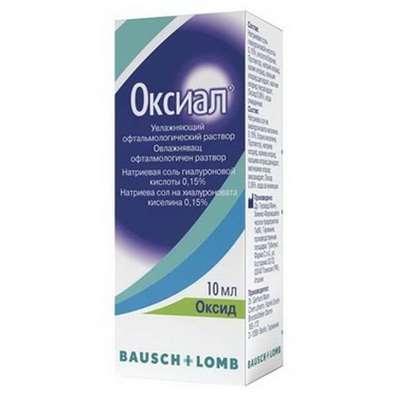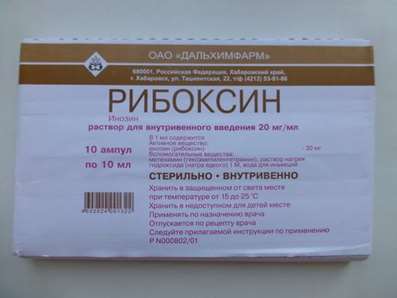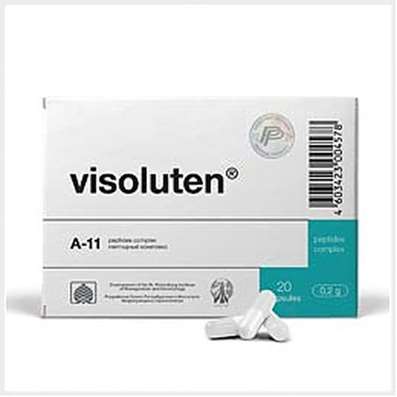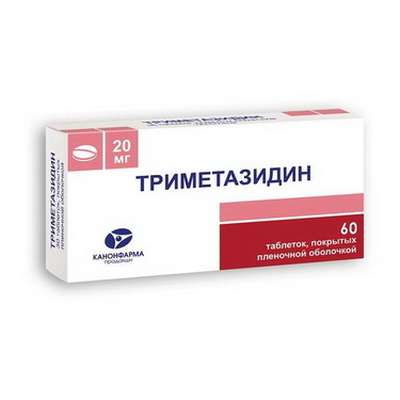Instruction for use: Vasobral
I want this, give me price
Trade name of the drug – Vasobral
Active substance: Dihydroergocriptinum+ Coffeinum
Dosage Form: tablets, oral solution
ATX
C04AE51 Ergoloida mesylate in combination with other drugs
Pharmacotherapeutic group: Vasodilating agent [Correction of cerebral blood flow in combination]
The nosological classification (ICD-10)
F90.0 Violation of activity and attention: Hyperactive child syndrome; Attention Deficit Disorder in Children; Hyperkinetic impulsive syndrome; Violation of attention with hyperactivity; attention deficit; Attention deficit in children; Difficulty concentrating; Concentration reduction; Violation of attention; Impaired concentration; Concentrating defect; Violation of mental activity; Violation of the ability to concentrate; Impairment of concentration; Violations of attention; Inability to concentrate; The weakening of attention; The weakening of the ability to concentrate; Decrease ability to concentrate; Reduced focus; disorders of attention; attention disorder; Attention Deficit Hyperactivity Disorder; Reduced attention; Reduced concentration; Decreased ability to concentrate
G43 Migraine: The pain at migraine, hemiplegic migraine, migraine headache, migraine attack, continuous headache, hemicrania
H35.0 Background retinopathy and retinal vascular changes: retinopathy; retinopathy; Atherosclerotic retinopathy; retinopathy of prematurity
H36.0 Diabetic retinopathy (E10-E14 + with common fourth character .3): Haemorrhagic diabetic retinopathy; Diabetic retinopathy; Macular degeneration in patients with diabetes
H36.8 Other retinal disorders in diseases classified elsewhere: arteriosclerotic retinopathy; Atherosclerotic retinopathy; Hypertensive retinopathy
H81.0 Meniere's disease: Meniere's syndrome/ disease; Meniere's disease; Meniere's syndrome; Labyrinth dropsy; endolymphatic hydrops
H81.4 Vertigo of central origin: Vertigo labyrinthine origin; vestibular vertigo; Vertigo of vascular origin
H81.8 Other disorders of vestibular function: Cogan's syndrome
H81.9 Violation of vestibular function, unspecified: Labyrinth, vestibular disorders; Labyrinth disorders; vestibular nystagmus; kohleovestibulyarny disorder; Kohleovestibulyarny syndrome vascular origin; Violation of the microcirculation in the maze; Ischemic disorders of hearing and balance
H93.1 Tinnitus (subjective): Tinnitus; kohleovestibulyarny disorder; Cochle-vestibular disorders ischemic nature; tinnitus
H93.2 Other abnormalities of auditory perception: hypacusia
I67.2 Cerebral atherosclerosis: Atherosclerosis of the arteries of the brain; Atherosclerosis of cerebral vessels; Atherosclerotic changes in cerebral vessels; Vascular diseases of the brain; Sclerotic ischemic attacks; Sclerosis of cerebral vessels
I67.9 Cerebrovascular disease, unspecified: lacunarity status; Angioneyropatiya; Arterial angiopathy; brain hypoxia; Encephalopathy; cerebral vascular disease and age-related; Coma in violation of cerebral circulation; Metabolic and cerebrovascular disorders; Violation of the blood supply to the brain; Cerebrovascular accidents; Violation of brain functions; Violation of the functions of the cerebral cortex; Violation of cerebral circulation; Cerebrovascular insufficiency; Acute cerebrovascular insufficiency; Acute ischemic attack; The defeat of the brain vessels; The progression of destructive changes in the brain; Disorders of cerebral circulation; The syndrome of cerebral insufficiency; Cerebral vascular insufficiency; Vascular encephalopathy; Vascular diseases of the brain; Vascular brain disorders; Vascular lesions of the brain; Functional brain disorders; Chronic cerebral ischemia; Chronic heart failure; Chronic cerebrovascular insufficiency; Chronic cerebrovascular insufficiency; Chronic violation of the blood supply to the brain; Cerebral insufficiency; Cerebral organic failure; encephalasthenia; cerebroasthenic syndrome; Cerebrovascular disease; Cerebrovascular pathology; cerebrovascular disease; cerebrovascular disorders; cerebrovascular disorders; Encephalopathy discirculatory
I73.0 Raynaud's Syndrome: Raynaud's syndrome Leriche; Raynaud's disease; Raynaud's phenomenon; RaynaudLeriche syndrome; Raynaud's disease; Raynaud's syndrome with trophic disorders; Peripheral angiopathy
I87.2 Venous insufficiency (chronic) (peripheral): Painful foot fatigue; The pain and feeling of heaviness in the legs; The pain of chronic venous insufficiency; Venous insufficiency; Venous insufficiency of the lower limbs; Venous-lymphatic insufficiency; Venous edema; phlebostasis; Ischemic lesions stop; Lipedema; Microcirculatory-trophic disorders; Violation of venous circulation; Violation of venous circulation of the lower limbs; Disorders of venous circulation; Disorders of the peripheral circulation in the extremities; Lack of chronic venous; Insufficiency of venous circulation; Organic venous insufficiency of the lower limbs; Acute venous insufficiency of the lower limbs; Swelling in the legs; limb edema; Swelling in the legs; Swelling of lower limbs due to chronic venous insufficiency; Swelling of the legs; Edematous pain in venous insufficiency; Swelling and pain in the legs; The feeling of heaviness in the legs; Prevarikozny syndrome; The static heaviness in the legs; Trophic tissue changes; Trophic tissue disorders; Trophic disorders; Heaviness in the legs; Fatigue in the legs; Chronic venous insufficiency; Chronic venous insufficiency of the lower limbs; Chronic ischemic disease of the lower extremities; Chronic insufficiency of venous circulation; The feeling of heaviness in the legs; The feeling of heaviness in the legs during pregnancy; The feeling of heaviness in the legs after prolonged standing
R41.0 Violation orientation unspecified: Disorientation; Violation of toxic origin of consciousness; Violation of consciousness traumatic origin; condition of disorientation; confusion; Impaired consciousness; disorders of the orientation; Sopor
R41.3.0 * Reduced memory: memory loss; memory impairment; The weakening of memory; memory impairment; Forgetfulness; Violation memory; Memory impairment in elderly patients; memory impairment; Memory impairment in relation to recent events
R41.8.0 * Disorders intellectual mnesticheskie: Secondary violations mnemonic functions; Difficulty concentrating; The difficulty of mental activity; Intellectual impairment; Intellectual-mental breach; Intellectual-mental disorder; psychic infantilism; Cognitive impairment; Violation of intellectual; Violation of mnemonic functions; Violation of intellectual activity; Violation of thinking; Violation of mental capacity; Violations of intellectual functions; Violations of thinking; Weakening intellectual productivity; Backlog of mental development; Primary disorders mnemonic functions; Lowering the intellectual productivity; Lowering the intellectual-mental functions; distraction; thought disorder; thought disorder; The decline of intellectual efficiency; Reduced intellectual-mental functions; Reducing the intellectual capacity; The decline of mental abilities; The decline of mental abilities in the elderly; The decline of mental function; The decline of mental function; Reduced memory in old age; Reduced mental activity; Reduced intellectual level; The deterioration of intellectual-mental functions; Chronic disorders of mental capacity
R42 Dizziness and disturbance stability: vertigo; Dizziness; Dizziness and nausea during travel on transport; disorders of balance; vestibular disorders; disequilibrium; Ischemic disorders of hearing and balance
R54 Senility: External signs of aging; Age-related eye disease; Age-related visual impairment; Age-related vascular disease; Age constipation; Age-related changes in visual acuity; Age-related changes in the brain involutional; Age-related disorders; Age-related hearing loss; gerontological practice; senile dementia; Deficiency of calcium and vitamin D3 in the elderly; cerebral vascular disease and age-related; involutionary depression; involutional depression; Correction of metabolism in middle and old age; Malnutrition in elderly and senile age.; senile dementia; senile dementia; senile depression; senile colpites; senile psychosis; Syndrome of age involution; Hearing loss age; Aging; Brain Aging; The aging of the organism; senile dementia; senium; Senile involutional psychosis; senile psychosis; Memory impairment in elderly patients; Conduct disorders in the elderly
Pharmacological effect of Vasorbal
Pharmachologic effect - vasodilating.
Storage conditions of Dalfaz
At a temperature of 15-25 ° C.
Keep out of the reach of children.
Shelf life
4 years.
Do not use beyond the expiration date printed on the package.

 Cart
Cart





